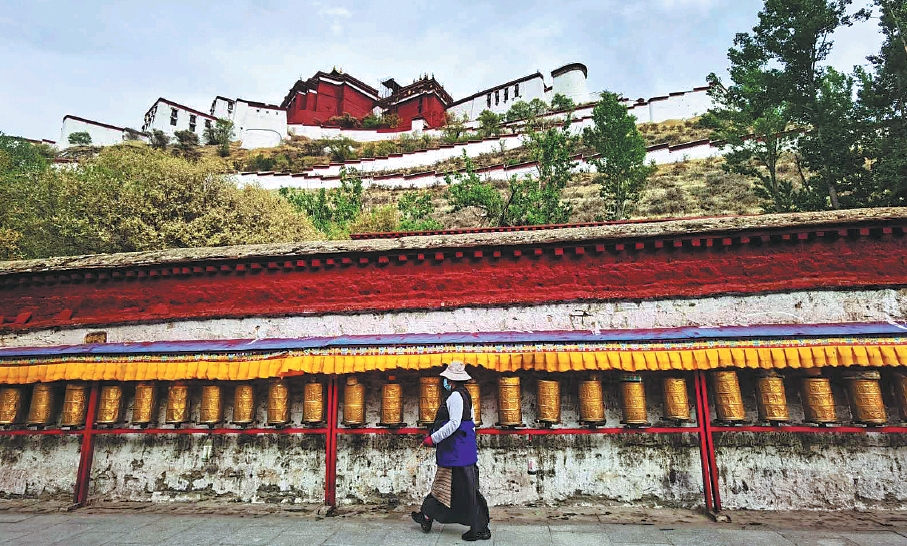Visions in the stream

Reopened in early June, the Potala Palace is one of the most celebrated scenic areas in Lhasa, capital of the Tibet autonomous region. [Photo provided to China Daily]
In Rongpo Monastery, about 5,100 meters above sea level, Feng Jiaqi was livestreaming picturesque views of Qomolangma, known as Mount Everest in the West.
To protect the environment, visitors have been banned from climbing above the temple since December.
But the scenery is much the same as that of the base camp, at an altitude of 5,200 meters, where they were allowed to visit.
Feng told the story of the first Chinese mountain climbers to reach the planet's highest summit six decades ago and the recent remeasuring of its height by Chinese surveyors and mountaineers.
Feng is marketing director of an online tourism retailer based in Lhasa, capital of the Tibet autonomous region. It has become her regular job to livestream the region's beautiful scenery and cultural heritage, and answer questions about travel.
"I like to share Tibet's beauty and culture. Livestreaming makes you feel like you're personally at the scene. I've also made many friends via livestreams," she says.
She says many fans aren't sure if they'll visit Tibet soon but say they'll consider her services if they do. The company's business has recovered to 40 percent of what it was before the COVID19 pandemic.
Feng is among a growing number of travel-industry players using livestreams to increase interest in destinations to court customers who may arrive after the pandemic.